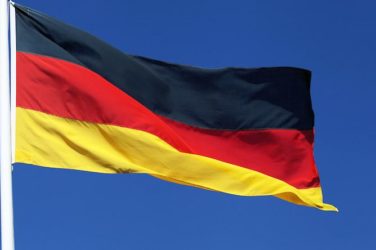
As regulators and policymakers around the world rush to meet the G20 deadline for pushing all standardized derivatives contracts through centralized clearing and on to exchange-like venues, market participants are fearful—as things stand—of the sheer complexity and overlapping nature of the reforms coming out of various jurisdictions.

Dr Christian Voigt, business solutions architect, Fidessa
“Naturally, every country is trying to clean up its own backyard before looking across the fence at its neighbor’s,” said Dr Christian Voigt, business solutions architect at trading and technology company Fidessa, in a recent blog.
“The disadvantage of this approach is that country-specific rules might not necessarily harmonize with each other.”
With the G20’s self-imposed end-of-2012 deadline just a matter of days away now, the U.S., with its Dodd-Frank Act, is furthest down the road to meeting its commitments, although it will likely fall short by a matter of months on certain aspects of implementing the legislation. Europe, the other main home to derivatives trading, through its Emir regulation, is lagging still further and there are reports that the new rules will not even be in place until some time in 2014.
Strong lobbying from banks and others in the industry has undoubtedly delayed the process, coupled with increased workloads for regulatory bodies following the financial crisis.
“Areas of inconsistency between Emir and Dodd-Frank remain to be resolved and include reporting requirements, rules for margin and collateral as well as registration requirements for brokers,” said Jonathan Mott, managing consultant at IMS Group, a compliance consultancy.
But regulatory bodies on both sides of the Atlantic, notably the Commodity Futures Trading Commission (CFTC) in the U.S. and the European Securities and Markets Authority (Esma), seem determined to iron out these inconsistencies although it promises to be a fraught process due to the differing stances they both hold.
Esma, which has been tasked with writing the detailed technical standards on Emir by the European Commission, has held back finalizing some of the new rules to try to line them up with those of the U.S. and also Asia, which is home to roughly 10% of the global derivatives market.
“We have not entirely finished consultations, as certain standards that Esma is required to draft under Emir will be delivered in a second batch,” said Verena Ross, executive director of Esma, at a recent conference in London.
“These were delayed to ensure an appropriate level of consistency at the international level and relate to the provisions on extraterritoriality, i.e. how to prevent regulatory arbitrage, and the exchange of collateral for bilateral trades.”
The CFTC, too, appears committed to this approach.
“We are bound to have some differences, given our different cultures and political systems, but we’ve made great progress internationally on an aligned approach to reform,” said Gary Gensler, chairman of the CFTC, in a recent Congressional testimony. “We are committed to working through any instances where the CFTC is made aware of a conflict between US law and that of another jurisdiction.”
But with its first-mover advantage, the CFTC is the one that appears to be shaping the rules of the road for this brave new OTC derivatives world.
“For a while, the lobby for restricting Dodd-Frank’s extraterritorial reach was quite vocal and gaining momentum,” said Samuel Lum, director of private wealth and capital markets at the CFA Institute, the global association for investment practitioners and academics.
“JPMorgan’s multi-billion trading losses at its chief investment office earlier this year—the ‘London Whale’ incident—shed a lot of light on this issue and may have contributed to shifting the political will to implement tight grips on extraterritorial OTC derivatives activities that could have systemic impact on the U.S. financial system. In addition, there is growing recognition that a global approach is important in order for OTC derivative regulation to be effective.”
Market participants are hoping that this more simplified global approach prevails. Earlier this month, 12 authorities including the European Union, Hong Kong, Japan, Singapore, Switzerland and the U.S. reaffirmed their commitment to implementing the G20 reforms.
“The reality is that the CFTC is as divided on extraterritoriality as any other regulator and the quest for good regulation will continue around the world,” said Voigt at Fidessa. “Swap markets are global and interconnected. The only way regulators can deal with that is by harmonizing and eliminating redundancy and inconsistency.”
The comprehensive new rules are being brought in to better regulate the opaque OTC derivatives markets by reducing risk and bringing more transparency to the process. U.S. investment bank Lehman Brothers was a big user of derivatives and its demise in September 2008 caused the onset of the current global financial crisis.
The new regulations will see parties having to post both initial and variation margin for standardized products that will see previously private bilateral trades forced on to central clearing. While the more esoteric OTC derivatives contracts that will remain outside of the clearing regime will be subject to strict procedures to reduce counterparty credit risk and operational risk. All counterparties and CCPs will also have to ensure that the details of all derivative contracts, regardless of how they are cleared, are reported to trade repositories.






